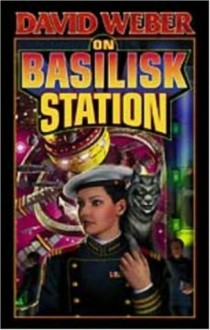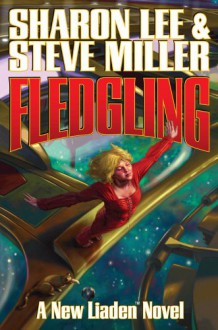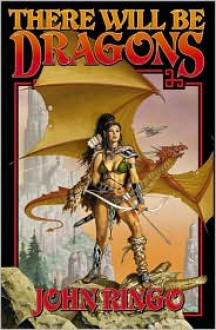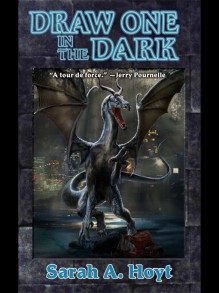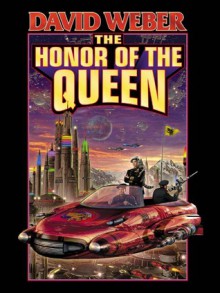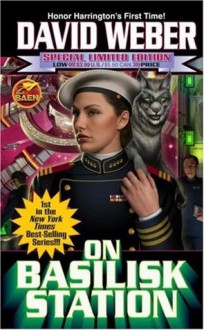
For some reason my writer brain intruded constantly throughout my reading of this book. Certainly my reader brain kept me reading, wondering what would happen next, but my writer brain would not shut up. I think part of that is because this is the first military scifi book I've read (ever? surely not?) and the first book I've read in omniscient point of view in a VERY long time.
In general, the story follows Honor Harrington and her first-time captaincy aboard the
Fearless. Yet instead of being in third-limited as I would expect, the viewpoint would often shift into the minds of her subordinates. Sometimes a scene would start firmly limited in, say, her first officer's (exec's) POV and then shift to her point of view later. I found these switches endlessly fascinating because this is so rare in contemporary SFF. And yet clearly he pulled it off and readers love it!
This is also one of the few military scifi books I've read. I found its conventions interesting and in some ways very similar to hard scifi, in that there are MASSIVE infodumps throughout this novel. There's even one
in the climax, generally a no-no of contemporary writing. And yet Weber pulls it off. For me as a reader, I found myself skipping over whole paragraphs of explanation about how a particular weapons system works.
Yet unlike hard scifi, this book was extremely concerned with relationships between characters.
First, Honor has to take charge of a new crew and gain their trust. They start the war games as heroes for a brilliant maneuver, but then come out beaten down once their secret is revealed. Then they're banished to Basilisk Station and her crew again gives her the cold shoulder. Yet most of these relationships are told rather than shown. And even Honor's reactions to them are often told rather than shown, at least early on in the book. And yet again, it clearly works, because I, like so many other readers, was drawn in.
As a reader, I found the basic plot rather predictable (obviously her special weapons will be a big deal in the climax, her crew will come to love her, her plan to patrol Basilisk will foil the invasion plans somehow, etc.), but that actually helped in a way. It made me sink comfortably into an unfamiliar genre in an unfamiliar POV about an unfamiliar topic.
I'd also like to pull out this big quote from David Webber from
milscifi.com about why gender equality in futuristic scifi only makes sense. (Of course!)
"[Far-future science fiction where] women continue to face the same sorts of barriers that they've faced in the twentieth and twenty first centuries (and earlier) irritates the heck out of me. In my opinion, it criminally short-sells women, who I don't think are going to put up with that sort of treatment in technic societies that far in the future. It also presupposes that the majority of men are too stupid to figure out (given enough time; I did say it was far-future science fiction where this bothers me) that denying half the human race the opportunity to contribute to its fullest capability is self-defeating, as well as morally wrong. And, finally, if we're on the right track with our current notions of gender equality (which I obviously think we are), then by the time we get a thousand or so years into the future, the notion of female equality with men ought to have all of the burning significance to the citizenry of the time that Pharaoh's policy towards the Hittites has for us today. It will be a done deal, a settled question, and the notion that we might go back to treating women as second-class citizens will have all the appeal of the notion that we might go back to the days of African slavery. The idea will simply be so absurd and so socially and morally reprehensible that it will be an automatic nonstarter. So I think that it may be that one reason I create so many strong, capable female protagonists in traditionally 'male' roles is as a vote on my part in favor of the notion that racial sanity will finally get it right and keep it that way."


 Log in with Facebook
Log in with Facebook 
